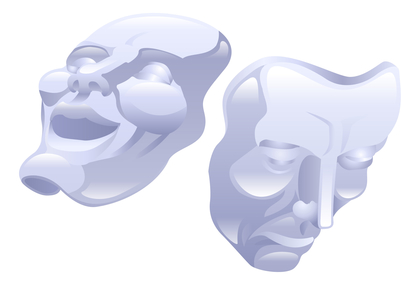Dealing with the highs and lows of bipolar disorder can be trying. The extreme mood changes can be hard to understand and even harder to live with. While you may feel out of control at times, bipolar disorder can be managed effectively with proper treatment. With effective treatment, the negative symptoms related to bipolar disorder can be mitigated and you can experience a rich and fulfilling life.
What Is Bipolar Disorder
Bipolar disorder is a mental illness characterized by extreme mood swings. Those who struggle with bipolar disorder experience mood changes from emotional highs, known as mania or hypomania, to emotional lows, known as depression. To be diagnosed with bipolar disorder you must experience at least one episode of mania or hypomania. The three main types of bipolar disorder include Bipolar I disorder, Bipolar II disorder, and Cyclothymic disorder. A Bipolar I disorder diagnosis requires at least one manic episode, that may include a psychotic break, often followed or preceded by an episode of major depression. To be diagnosed with Bipolar II disorder, you need to experience at least one episode of major depression as well as at least one episode of hypomania, but no episodes of mania. For a diagnosis of Cyclothymic disorder you need to experience several episodes of hypomania over a two year period, as well as episodes of depression, but not major depression. During the course of the illness, there can be periods with mania or hypomania and periods of depression. There can periods of time with no symptoms. It also possible to experience periods with symptoms of both mania and hypomania occurring at the same time.
Mania and Hypomania
Mania and hypomania include many of the same symptoms. However, mania is much more severe than hypomania. With mania, you could experience a psychotic break that requires hospitalization and includes hallucinations, delusional thoughts, and paranoia. Mania and hypomania can have a negative impact on your day to day functioning and relationships. Symptoms of mania and hypomania include, high energy, restlessness, grandiosity, inflated self-esteem, decreased need for sleep, racing thoughts, being easily distracted, and taking on multiple projects. Inhibitions are often lowered and sexual desire is increased leading to engagement in dangerous behaviors such as gambling, spending a lot of money, and impulsive sexual activity. Although mania and hypomania can be especially troubling to loved ones, since the person with bipolar disorder says or does things that are irrational and completely out of character. The person experiencing the symptoms rarely thinks anything is wrong. Someone experiencing a manic phase can be reluctant to get help even though everyone around them sees their behavior as unusual and erratic, unless they are forced to due to a psychotic break.
Depression and Major Depression
The episodes of depression experienced with bipolar disorder can be especially problematic when following the elation experienced during mania and hypomania. With major depression, symptoms are generally more severe and functioning is significantly impaired in one or more areas. Major depression symptoms last at least two weeks and can have a negative impact on functioning at work, school, home, and in relationships. Symptoms of depression and major depression include feelings of sadness or emptiness, feelings of hopelessness, low energy, irritability, loss of interest in things that were previously enjoyed, sleeping a lot or having difficulty sleeping, decreased libido, loss or increase in appetite, difficulty thinking clearly, and thoughts of suicide. Those with bipolar disorder who are experiencing depression may be more willing to get help, but could lack the motivation and ability to follow through. Depression, unlike major depression, enables you to function, although not optimally. If you have depression you may be able to function at work, but you may go straight to bed when you get home. With major depression, you could have difficulty completing basic tasks such as showering, and brushing your teeth.
Treatment
Treatment for bipolar disorder usually consists of a combination of medications and psychotherapy. Medications are often used to help stabilize mood changes. This way the highs are not as noticeable and the lows are less intense. Common medications used to treat bipolar disorder include mood stabilizers, antipsychotics, and antidepressants. It is important to work with a psychiatrist to make sure you receive the correct combination of effective medications. For example, being treated with an antidepressant alone can increase manic episodes in people with bipolar disorder. Psychotherapy such as Cognitive Behavioral Therapy and psychoeducation can help you understand the disorder and manage the symptoms more effectively. By learning your triggers and automatic responses, you can make effective changes that help mitigate the negative symptoms and balance the extreme mood shifts.
Living With Bipolar Disorder
Living with bipolar disorder can be exhausting as you attempt to keep relationships and your life intact during the euphoric highs, and try to keep from falling into the depths of despair during the dark lows. Bipolar disorder can be well managed with a combination of medication and psychotherapy. However, due to troubling side effects, having difficulty finding the right combination, or even missing the energy and elation of mania, medication compliance can be difficult to maintain. There is an increased risk of self-harming behaviors and suicide attempts as it can be hard to consistently attend therapy during an episode of major depression.
Bipolar disorder is a life-long illness that requires consistent management. Surrounding yourself with a supportive team of doctors, therapists, friends, and family is key to dealing with it effectively. A strong support system that understands you, is familiar with bipolar disorder, and can help you recognize the first signs of mood changes, will enable you to manage it effectively and live the life you want.



